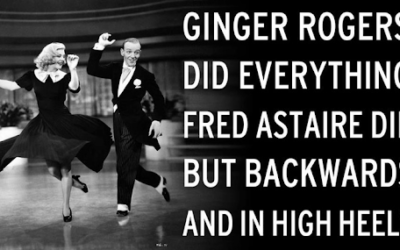Title: TBD
Study: Does Gender Bias Against Female Leaders Persist? (Kim M. Elsesser and Janet Lever. Sage 2011)
Finding: TBD
Note about The Woman Effect Research Index: This study was performed by researchers not affiliated with InPower Women. Our Research Index includes all relevant research to the subject of women, business and power. We do not influence how the research was conducted or reported by the researchers. In our abstracts, we focus on pulling out the most actionable advice for individual women. To suggest additional research we should index, or discuss our choice of abstract focus, please contact us
InPower Insight: TBD
Summary:
When 60, 470 women and men were surveyed, 54% of the respondents agreed that the gender of their boss is irrelevant. This number has risen significantly over the last few decades: in 1953, 25% of respondents didn’t care and in 1983, 36% had no preference. Respondents tended to praise bosses of the opposite sex, with men highly rating their female bosses and male bosses being highly rated by their female employees. Remaining respondents preferred male bosses over females in a 2:1 ratio. This study aimed to determine the conditions under which female bosses were preferred less than male with something called the role congruity theory. The study purported that gender bias against females could be attributed to the discrepancy between the traditional female gender role and the leadership role. Stereotypically, women are seen as wanting to maintain communal style environment, are nurturing and caring, and are seen as more sensitive. Men are usually seen as the more aggressive and forward gender so they are seen as more fit for leadership roles. According the theory, women suffer form two types of prejudice: descriptive and prescriptive. In descriptive prejudice, female leaders are thought of as inherently having less potential than men. In prescriptive, men are seen as more desirable than women for leadership roles. If women conform to traditional behavior, they are seen as having less potential; if they go against it, they are negatively cast as out-of-line. The study found that bosses categorized as sensitive were rated as more competent than those categorized as direct.
Personal Coaching Tip: TBD
Keywords: Female Bosses, Role Congruity Theory, Sterotypes






